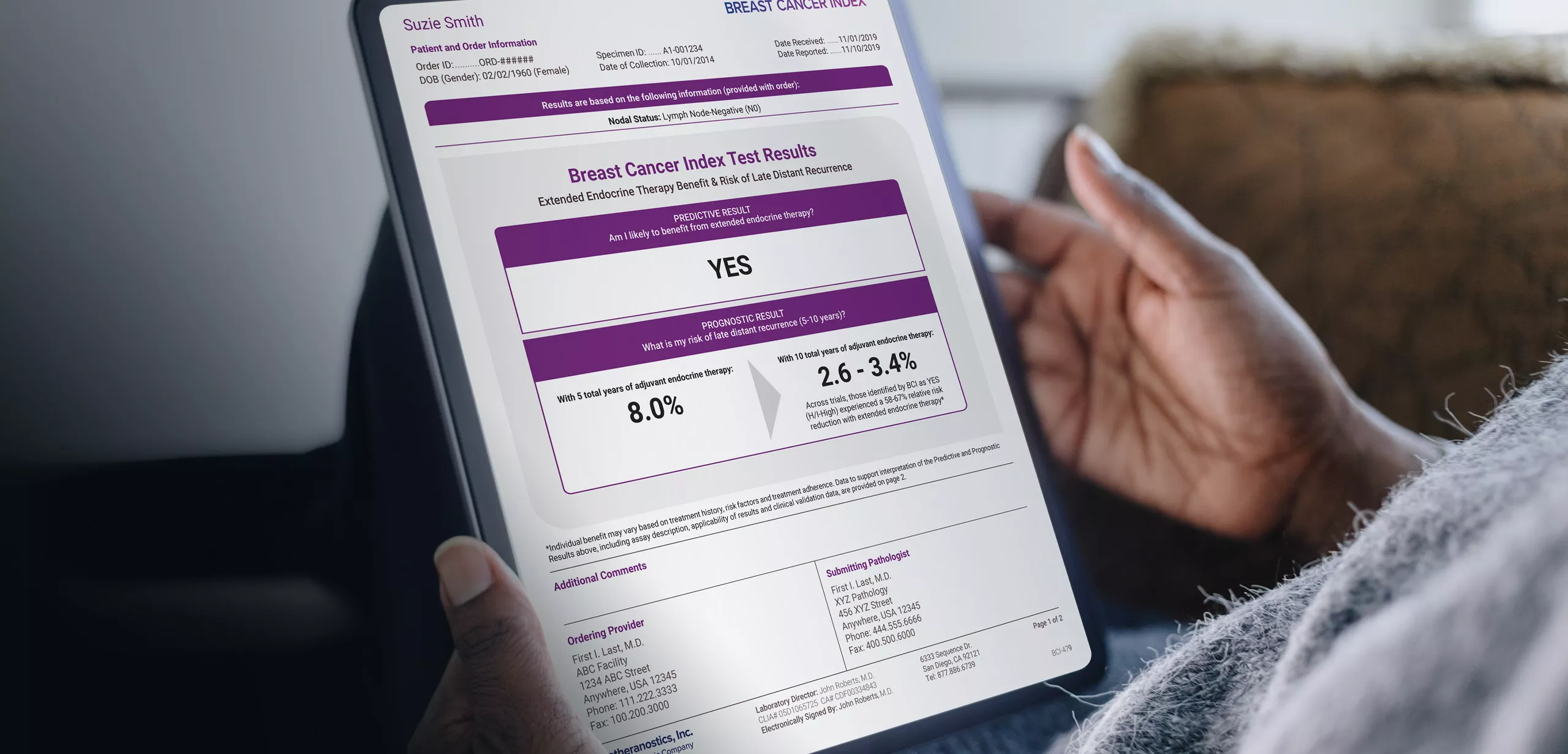What if you could reduce the uncertainty of breast cancer treatment? The Breast Cancer Index test (BCI) was designed to do just that. This proprietary genomic test helps inform the appropriate duration of endocrine therapy.1-5 It is the only guideline-recognized test for predicting the benefits of extended antiestrogen therapy.6,7
Extending endocrine therapy beyond five years has been shown to reduce the risk of recurrence in some women with hormone receptor-positive (HR+), early-stage breast cancer. However, longer treatment is associated with potentially significant side effects, and many women do not benefit.8-10
The BCI identifies:
- Which patients are likely to benefit from extension of adjuvant anti-estrogen therapy beyond five years.
- An individual’s risk of late distant recurrence (five to 10 years post-diagnosis).
For more information, visit BreastCancerIndex.com.

A Patient’s Story
Kaye de Lancey is a breast cancer survivor. However, her journey to this point has been anything but comfortable.
When Kaye learned she had breast cancer, she was devastated and worried about the future. She chose to undergo a double mastectomy and later continued her treatment path with estrogen-suppressing aromatase inhibitors.
While under hormone-altering treatment, she experienced multiple adverse side effects that dramatically altered her everyday life. She felt like a shell of her former self, impacted by joint aches, weight gain, mood changes, skin issues and gastrointestinal problems.
Four-and-a-half years later, Kaye’s treatment path changed with her BCI test results, ordered by her oncologist. This showed that Kaye only had a 2% chance of breast cancer recurrence, eliminating the need to continue endocrine therapy for another five years.
Within a couple of months, Kaye was able to stop anti-estrogen treatment and start to feel like herself again. Those close to her, such as her husband and sister, commented that the “old” Kaye was returning. “I was no longer exhausted all the time,” Kaye said. “I felt like the shades were being drawn up from the windows, and I had been in the dark for so long.”
Kaye’s recommendation to anyone struggling with the side effects of endocrine therapy is simple. “Go and get this test. Ask your doctor for the BCI test and advocate for yourself. This test will provide you with peace of mind and a sense of relief when you get the results. No matter what the results are, you will finally have something concrete to lean on for the next steps of your treatment path.”


